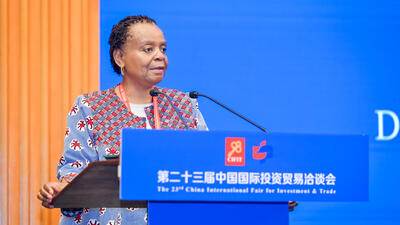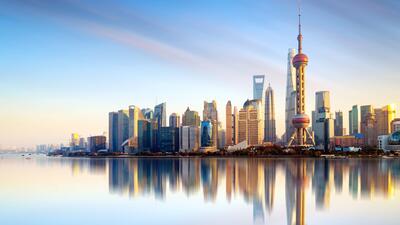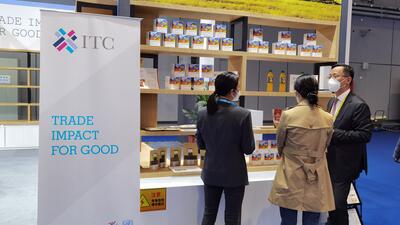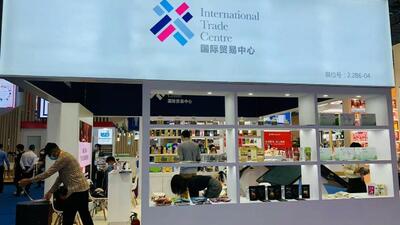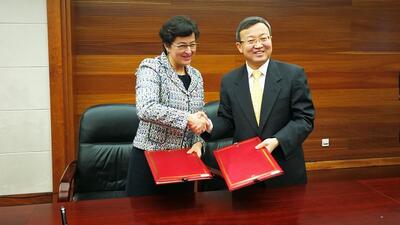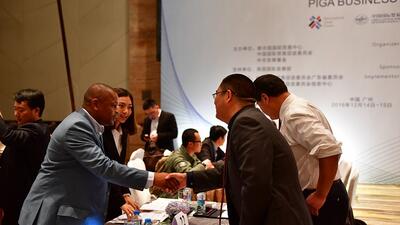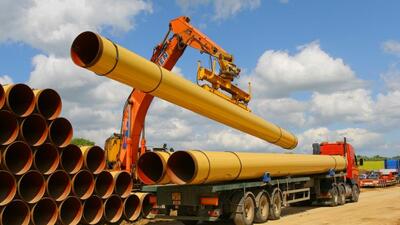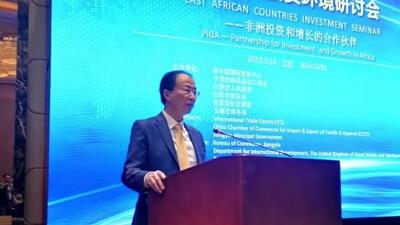Trade facilitation at work in Hong Kong
Hong Kong, China is undisputedly one of the world’s leading financial and logistics hubs. An economic policy of free enterprise and free trade, rule of law, and an emphasis on and investment in education and commercial infrastructure have all been key contributing factors to its success. The opening of the vast Mainland market following China’s accession to the World Trade Organization (WTO) in 2001 has provided further impetus to bolster Hong Kong's role as an international services and trading hub, making the city the world’s ninth largest trading economy and its 11th largest exporter of commercial services. In fact, over the past two decades, Hong Kong has seen a remarkable structural transformation, with the services sector constituting a 93.1% share of its gross domestic product (GDP) in 2011 and accounting for 88.4% of total employment in 2012.
Although it provides the infrastructure both through direct services and by cooperation with public utility enterprises, the Government’s major role is to provide a suitable and stable framework for commerce and industry to function efficiently and effectively with minimum interference. There is no protection or subsidization of manufacturers in Hong Kong. Simply put, in the context of the free market and free enterprise economic framework, the Hong Kong Government strives to provide a business-friendly environment based on macro-economic stability, a low and simple tax regime, the provision of excellent infrastructure, investment in education, training and human resources, and the effective protection of individual and property rights through Hong Kong’s sound legal system.
Hong Kong is a full member of the WTO and home to the largest community of shipping, freight forwarding and logistics providers in Asia. The city has one of the world’s busiest container ports, with nine terminals and 24 berths supporting a multitude of practical and reliable multi-modal logistics solutions. Warehouse and distribution centres are springing up close to Hong Kong’s container ports, with easy road connections to the international airport and via major highways to Mainland China.
Round-the-clock border crossings and one-stop customs clearance allow for the efficient transfer of goods to and from Mainland China. The introduction of key trade facilitation measures has further increased efficiency: an electronic cargo clearance platform, an improved customs clearance scheme, as well as the Hong Kong Authorised Economic Operator (AEO) programme, a customs-to-business partnership to enhance international supply chain security and facilitate the movement of legitimate goods.
From the trade perspective, finance is paramount to this activity. Hong Kong is home to 71 of the world’s 100 largest banks. Many of them provide trade finance, and the environment for this is competitive, with multiple institutions providing complete trade finance solutions, including import and export loans, cash advances, finance for open account trading, packing credit, export documentary credit negotiation and export finance. In short, comprehensive solutions that allow small and medium-sized enterprises to capitalize on new business opportunities and negotiate better deals with suppliers.
Facilitating intra-Asian tradeThe impact on intra-regional trade has been significant. As strong, stable growth in the West has subsided, regional markets in Asia have become more attractive, highlighting the importance of enhanced integration. Currently, more than half of world trade takes place between members of regional trade agreements, and Asia is no exception. South-East Asia is shoring up its economic integration efforts through the Association of Southeast Asian Nations (ASEAN) Economic Community for 2015. Hong Kong is keen to be part of this trade and economic growth. A free trade deal between the city and ASEAN is planned to be concluded by early next year. ASEAN as a bloc accounted for about 10.2% of Hong Kong’s total trade in 2011, surpassing trade with the European Union. Hong Kong is also an important entry port of trade between Mainland China and ASEAN, with average annual growth for re-export trade reaching 12% in 2011.
Hong Kong’s appeal for trade is multiple: as well as its position as a dynamic city with strong growth prospects, as China’s global financial centre and as an international asset management, shipping and trade centre, it is also a gateway to opportunities in Mainland China, a regional base for expansion across Asia and the first stepping stone for Mainland Chinese companies going global.
At Invest Hong Kong, we help a broad range of companies, from entrepreneurs involved in the development of technology solutions for the supply chain management industry to the largest multinationals running global shipping or aviation businesses. For retailers or wholesalers involved in sourcing, buying or trading, Hong Kong offers the dual advantages of proximity to source and access to consumers. Shopping is the number one leisure activity of Hong Kong’s seven million residents; many of its 48.6 million visitors a year also come to the city expressly to shop. With no sales tax and no import tariffs on almost all products, it is no wonder that shoppers spend more than US$ 3.8 billion a month in Hong Kong stores.




